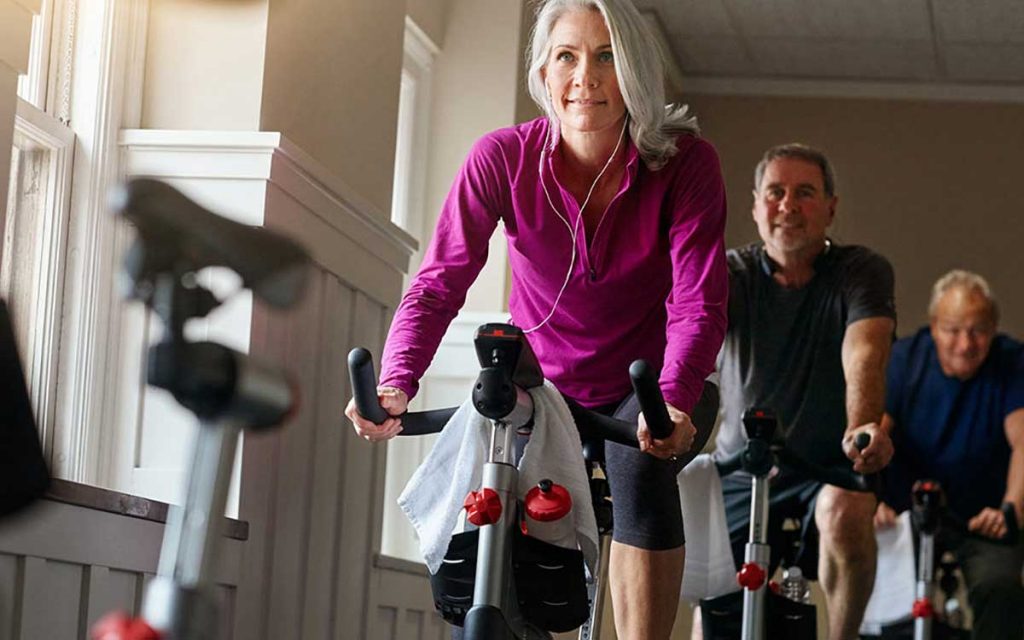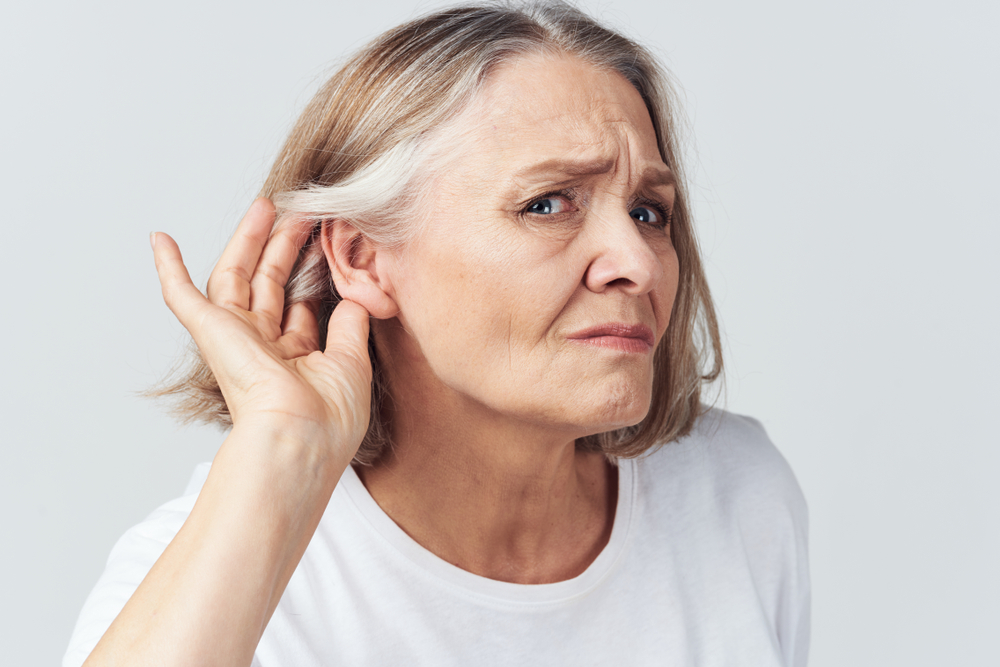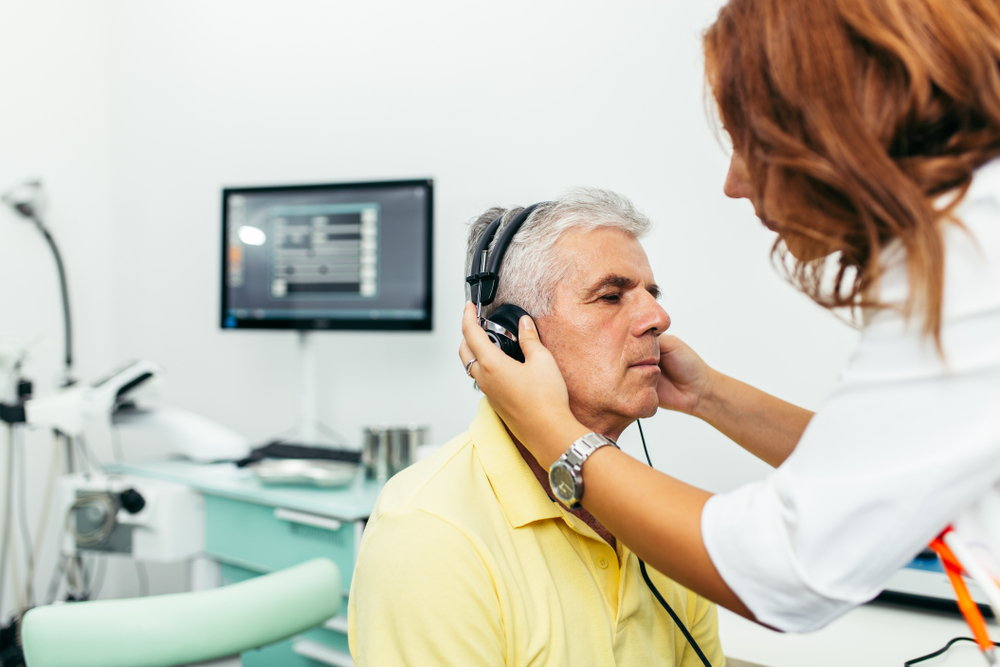Spinning is a great way to get your cardio for the day and improve circulation. It’s fast-paced and fun. It gets you exercising. You can burn up to 600 calories in 45 minutes if you’re a pro. But it’s really popular when spinning to pump up the music. And there are side effects of spin class and similar activities that you should be aware of.
Music’s effect on exercise performance
A 2017 study demonstrated a connection between music tempo and exercise performance. Researchers discovered music increases exercise performance, delays fatigue, and increases performance, endurance, power, and strength.
Participants exercised harder and faster with a faster tempo. They slowed down when the music slowed. Other studies have recorded similar results.
Spin class instructors, aerobic teachers, and gym owners have taken note of these findings. They’re choosing faster-paced music and pumping up the volume to help their clients get the most out of their exercise routines.
The loud and fast music may get you to exercise harder during your workout, but it creates a problem.
Loud music can damage your hearing
After spin class, do you struggle to hear your fellow spinners? Do your ears feel plugged? Have you noticed a ringing sound that’s not actually there? These are all signs the music was way too loud.
It’s important to remember you’re not immune if you don’t have these symptoms. Permanent hearing loss occurs very slowly and may go undetected for years. It’s still happening, however, and it’s irreversible.
Over the years, loud music destroys more and more of the tiny hair-like cells in your inner ear that pick up sounds. As it does, hearing loss becomes more apparent.
How loud is too loud?
A soft wind moves through the leaves on an autumn day. That’s about 10 decibels (dB), which is among the quietest sounds individuals with healthy hearing can typically hear. For comparison, we whisper at about 30 dB.
Most of our conversations are around 50 dB. A hairdryer operates at about 78 dB. A running lawnmower is about 80 dB and “weed whackers” and leaf blowers operate at about 100 dB.
The sounds of gunshots, fireworks, and thunder are typically more than 150 dB.
Prolonged exposure to noises over 85 dB for eight hours or more can cause damage to your hearing. That’s only a little louder than a lawnmower. Riding a motorcycle, which has a volume of around 100 dB, can cause damage to your unprotected ears within 15 minutes. After that period of time, hearing damage will occur instantly.
You may not realize it walking out of spin class or a loud nightclub, but each time hearing damage occurs, you’re adding to previous damage. Eventually, you will end up experiencing profound hearing loss.
Here’s the unsurprising news. It’s not uncommon for gyms to keep the volume over 85 dB at all times. According to studies, gyms can be as loud as 99 dB, which is enough to cause permanent damage after 15 minutes.
During spin class, a common mantra from participants is “Turn it up,” because they think they’ll get a better workout.
How to avoid hearing damage
Don’t stop working out, especially if your love of the stationary bike helps you stay active. You simply have to take precautions to protect your hearing.
1. Take inventory
Consider all the loud places you go. These may include some you don’t think of:
- Restaurants
- Specialty shops, particularly those that cater to young people
- Walking near busy highways or streets
- Driving your car with the windows or top down
- Concerts and public events
- Gym/Zumba/aerobics/spin class
- Performing yard work with power equipment
- Occupational noise exposure
- Subway or train stations
- Shooting ranges
- Listening to loud music with earbuds
- Recreational vehicles (motorcycles, jet skis, snowmobiles, motorboats, etc.)
2. Measure the volume
Download a free sound meter on your smartphone or ask a friend to download one to help you determine how loud your favorite activities are.
Find out how loud your favorite places are. Some spin classes turn the music up over 100 dB for 45 minutes or l0nger. If they’re doing this during your spin class, you’ll want to wear ear protection.
3. Limit your exposure
When you have options, choose places where it’s not so loud. Limit your time performing activities that cause hearing damage unless you’re able to wear ear protection. Wear earplugs when they’re an option.
You may never have noticed because you didn’t really think about it before, but people of all ages wear earplugs at the gym to avoid damaging their hearing.
4. Don’t wait to get your hearing tested
If you’ve had significant exposure to loud activities, the damage may already be done. It’s not reversible, but there are steps you can take to prevent further hearing loss.
Get a hearing test from a hearing specialist to find out where you stand. Don’t wait until it gets really bad. Untreated hearing loss can cause numerous life and health challenges.
Hearing aids are the best solution for most forms of hearing loss. You may be surprised how advanced modern “hearables” are.
Talk to a hearing specialist as soon as possible about treatment options.



